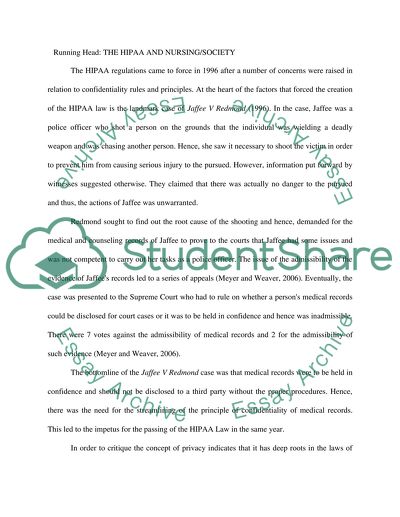Cite this document
(“The HIPAA Law and Nursing/Society Term Paper Example | Topics and Well Written Essays - 2500 words”, n.d.)
The HIPAA Law and Nursing/Society Term Paper Example | Topics and Well Written Essays - 2500 words. Retrieved from https://studentshare.org/nursing/1477802-the-hipaa-law-and-nursingsociety
The HIPAA Law and Nursing/Society Term Paper Example | Topics and Well Written Essays - 2500 words. Retrieved from https://studentshare.org/nursing/1477802-the-hipaa-law-and-nursingsociety
(The HIPAA Law and Nursing/Society Term Paper Example | Topics and Well Written Essays - 2500 Words)
The HIPAA Law and Nursing/Society Term Paper Example | Topics and Well Written Essays - 2500 Words. https://studentshare.org/nursing/1477802-the-hipaa-law-and-nursingsociety.
The HIPAA Law and Nursing/Society Term Paper Example | Topics and Well Written Essays - 2500 Words. https://studentshare.org/nursing/1477802-the-hipaa-law-and-nursingsociety.
“The HIPAA Law and Nursing/Society Term Paper Example | Topics and Well Written Essays - 2500 Words”, n.d. https://studentshare.org/nursing/1477802-the-hipaa-law-and-nursingsociety.


